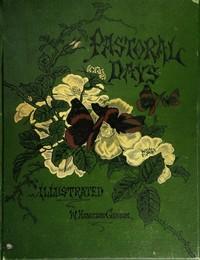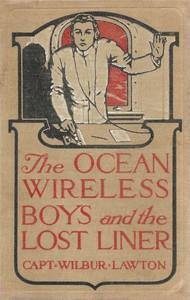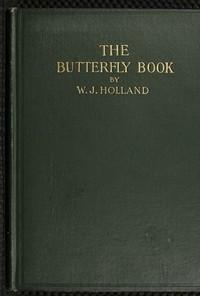Read this ebook for free! No credit card needed, absolutely nothing to pay.
Words: 11131 in 3 pages
This is an ebook sharing website. You can read the uploaded ebooks for free here. No credit cards needed, nothing to pay. If you want to own a digital copy of the ebook, or want to read offline with your favorite ebook-reader, then you can choose to buy and download the ebook.


: Pastoral Days; or Memories of a New England Year by Gibson W Hamilton William Hamilton - Natural history Outdoor books; Natural history New England
Silently, like thoughts that come and go, the snow-flakes fall, each one a gem. The whitened air conceals all earthly trace, and leaves to memory the space to fill. I look upon a blank, whereon my fancy paints, as could no hand of mine, the pictures and the poems of a boyhood life; and even as the undertone of a painting, be it warm or cool, shall modify or change the color laid upon it, so this cold and frosty background through the window transfigures all my thoughts, and forms them into winter memories legion like the snow. Oh that I could translate for other eyes the winter idyl painted there! I see a living past whose counterpart I well could wish might be a common fortune. I see in all its joyous phases the gladsome winter in New England, the snow-clad hills with bare and shivering trees, the homestead dear, the old gray barn hemmed in with peaked drifts. I see the skating-pond, and hear the ringing, intermingled shouts of the noisy, shuffling game, the black ice written full with testimony of the winter's brisk hilarity. Down the hard-packed road with glancing sled I speed, past frightened team and startled way-side groups; o'er "thank you, marms," I fly in clear mid-air, and crouching low, with sidelong spurts of snowy spray, I sweep the sliding curve. Now past the village church and cosy parsonage. Now scudding close beneath the hemlocks, hanging low with their piled and tufted weight of snow. The way-side bits like dizzy streaks whiz by, the old rail fence becomes a quivering tint of gray. The road-side weeds bow after me, and in the swirling eddy chasing close upon my feet, sway to and fro. Soon, like an arrow from the bow, I shoot across the "Town Brook" bridge, and, jumping out beyond, skip the sinking ground, and with an anxious eye and careful poise I "trim the ship," and, hoping, leave the rest to fate.
Perhaps I land on both runners, perhaps I don't; that depends. I've tried both ways I know, and if I remember rightly, I always found it royal jolly fun; for what cared I at a bruise, or a pint of snow down my back, when I got it there myself?
At the foot of that long hill the "Town Brook" gurgles on its winding way, and passing beneath the weather-beaten bridge, it makes a sudden turn, and spreads into a glassy pond behind the bulwarks of the saw-mill dam. In summer, were we as near as this, we would hear the intermittent ring of the whizzing saw, the clanking cogs, and the tuneful sounds of the falling bark-bound slabs; but now, like its bare willows that were wont to wave their leafy boughs with caressing touch upon the mossy roof, the old mill shows no sign of life. Its pulse is frozen, and the silent wheel is resting from its labors beneath a coverlet of snow. Who is there who has not in some recess of the memory a dear old haunt like this, some such sleeping pond radiant with reflections of the scenes of early life? Thither in those winter days we came, our numbers swelled from right and left with eager volunteers for the game, till at last, almost a hundred strong, we rally on the smooth black ice.
How clearly and distinctly I recall those toughening, rollicking sports on the old mill-pond! I see the two opposing forces on the field of ice, the wooden ball placed ready for the fray. The starter lifts his stick. I hear a whizzing sweep. Then comes that liquid, twittering ditty of the hard-wood ball skimming over the ice, that quick succession of bird-like notes, first distinct and clear, now fainter and more blended, now fainter still, until at last it melts into a whispered, quivering whistle, and dies away amidst the scraping sound of the close-pursuing skates. With a sharp crack I see the ball returned singing over the polished surface, and met half-way by the advance-guard of the leading side. The holder of the ball with rapid onward flight hugs close upon his charge, keeping it at the end of his stick. Past one and another of his adversaries he flies on winged skates, followed by a score of his companions, until, seeing his golden opportunity, with one tremendous effort he gives a powerful blow. To be sure, one of his own men interposes the back of his head and takes half the force of his stroke; but what does that matter, it was all in fun? besides, he had no business to be in the way. The ball thus retarded in such a trivial manner instantly meets a barricade of the excited opponents, who have hurried thither to save their game; but before any one can gain the time to strike the ball, the starters rush pell-mell upon them. Now comes the tug of war. Strange fun! What a spectacle! The would-be striker, with stick uplifted, jammed in the centre of a boisterous throng; the hill-sides echo with ringing shouts, and an anxious circle with ready sticks forms about the swaying, gesticulating mob. Meanwhile the ball is beating round beneath their feet, their skates are clashing steel on steel. I hear the shuffling kicks, the battling strokes of clubs, the husky mutterings of passion half suppressed; I hear the panting breath and the impetuous whisperings between the teeth, as they push and wrestle and jam. A lucky hit now sends the ball a few feet from the fray. A ready hand improves the chance; but as he lifts his stick a youngster's nose gets in the way and spoils his stroke; he slips, and falls upon the ball; another and another plunge headlong over him. The crowd surround the prostrate pile, and punch among them for the ball. When found, the same riotous scene ensues; another falls, and all are trampled under foot by the enthusiastic crowd. Ye gods! will any one come out alive? I hear the old familiar sounds vibrating on the air: whack! whack! "Ouch!" "Get out of the way, then!" "Now I've got it!" "Shinney on yer own side!" and now a heavy thud! which means a sudden damper on some one's wild enthusiasm. And so it goes until the game is won. The mob disperses, and the riotous spectacle gives place to uproarious jollity.
There are other more tranquil reflections from that old mill-pond. Do you not remember the little pair of dainty skates whose straps you clasped on daintier feet; the quiet, gliding strolls through the secluded nooks; the small, refractory buckle which you so often stooped to conquer; and the sidelong grimaces of less fortunate swains--sneers that brought the color tingling to your cheeks with mingled pride and anger? Ah! things so near the heart as these can never freeze.
Yonder, just below that clustered group of pines, where the water-weeds and lily-pads are frozen in the ice, we chopped our fishing holes, and with baited lines and tip-ups set, we waited, wondering what our luck would be. With eager eyes we watched the line play out, or saw the tip-up give the warning sign. And as with anxious pull we neared the end of the tightening cord, who shall describe that tingling sense of joy at the first glimpse of the gaping pickerel?
Near by I see the yellow-fringed witch-hazel bending in graceful spray over the flaky, bordering ice, that mystic shrub whose feathery winter blooms we gathered as a token for the little one with dainty skates.
Still farther up the pond the marbled button-wood-tree, with spreading limbs and knotty brooms of branchlets, rises clear against the sky, its little pendulums swinging away the winter moments. At its very roots the dam spreads into a tufted swamp, thick-set with alders. How often have I picked my way through that wheezing, soggy marsh in quest of the rare Cecropia cocoons; treading among glazed air-chambers, whose roof of ice, like a pane of brittle glass, falls in at my approach--a crystal fairy grotto, set with diamonds and frost ferns, annihilated at a step.
And then the lovely woods. How few there are who ever seek their winter solitude: and of these how fewer still are they who find anything but drear and cold monotony!
We read the literature of our time, and find it rich in story of the home aspects of winter; of Christmas joys and festivals, of holiday festivities, and all the various phases of cosy domestic life; but not often are we tempted from the glowing hearth into the wilds of the bare and leafless forest. We read of the "drear and lonely waste, the cheerless desolation of the howling wilderness," and we look out upon the naked, shivering trees and draw our cushioned rockers closer to the grateful fire.
Not I; bitter were the winds and high the piled-up drifts that shut me in from out-of-doors in those glorious days; and whether on my animated trapping tours, or hunting on the crusted snow, with powder-horn and game-bag swinging at my side, or perhaps pressing through the tangled thickets in my impetuous search for those pendulous cocoons, now stopping to tear away the loosening bark on moss-grown stump, now looking beneath some prostrate board for the little "woolly bears" curled up in their dormant sleep: no matter what my purpose, always I was sure to find the winter full of interest and beauty. How distinctly I recall the thrilling spectacle of that glad morning when, awakening early, and jumping from the little cot so snug and warm, I tripped across the chilly floor and scratched a peep-hole on the frosted window-pane; looked out upon a world so changed, so strangely beautiful, that at first it seemed like a lingering vision in half-awakened eyes--still looking into dream-land. All the world is dressed in purest white, as soft and light as down from seraphs' wings. The orchard trees, the elms, and all the leafless shrubs, as if by magic spell, transformed to shadowy plumes of spotless purity, and the interlacing boughs o'erhead vanishing in a canopy of glistening, feathery spray. I look upon a realm celestial in its beauty, unprofaned by earthly sign or sound. A strange, supernal stillness fills the air; and save where some unseen spirit-wing tips the slender twig and lets fall the scintillating shower, no slightest movement mars the enchanted vision. Above, in the far-off blue, I see the circling flock of doves, their snowy wings glittering in their upward flight--apt emblems in a scene so like a glimpse of spirit-land. A single vision such as this should wed the heart to winter's loveliness, a loveliness inspiring and immaculate, for never in the cycle of the year does nature wear a face so void of earthly impress, so spirit-like, so near the heavenly ideal.
One of the most striking features of the winter ramble in the woods is their impressive stillness. But stop awhile and listen. That very silence will give emphasis to every sound that soon shall vibrate on the clear atmosphere, for "little pitchers have big ears," and wide-open eyes too. They will first be sure that the stick you hold is only a cane, and not the small boy's gun which they have so learned to dread. Hark! even from the hollow maple at your side there comes a scraping sound, and in an instant more two black and shining eyes are peering down at us from the bulging hole above. Tut! don't strike the little fellow. Had you only waited a moment longer, we would have seen him emerge from his concealment, and with frisky, bushy tail laid flat upon the bark, he would have hung head downward on the trunk, and watched our every movement; but now you've startled him, he thinks you mean mischief, and you'll see his sparkling eyes no more at that knot-hole. Listen! Now we hear a rustling in the sere and snow-tipped weeds somewhere near by, and presently a little feathery form flits past, and settles yonder on the swaying rush. With feathers ruffled into a little fuzzy ball, he bustles around among the downy seeds, now prying in their midst, now hanging underneath, head up, head down, no matter which, it's all the same to him. Now he stops short in his busy search, turns his little head jauntily from side to side, lifts his tufted crest, and sets free his pent-up glee--"See! see! see me sing! Chickadee-dee-dee!" Who has not heard that wee small voice ringing in the frosty air? and who, having heard it, has not longed to catch and cuddle that little feathery puff, the winter's own darling, whose little warm heart and sprightly song temper the chill and enliven the cheerless days?
Free books android app tbrJar TBR JAR Read Free books online gutenberg
More posts by @FreeBooks

: The Ocean Wireless Boys and the Lost Liner by Goldfrap John Henry Wrenn Charles L Charles Lewis Illustrator - Telegraph Wireless Juvenile fiction


: Encyclopaedia Britannica 11th Edition Jacobites to Japan (part) Volume 15 Slice 2 by Various - Encyclopedias and dictionaries


: The Butterfly Book A Popular Guide to a Knowledge of the Butterflies of North America by Holland W J William Jacob - Butterflies North America




